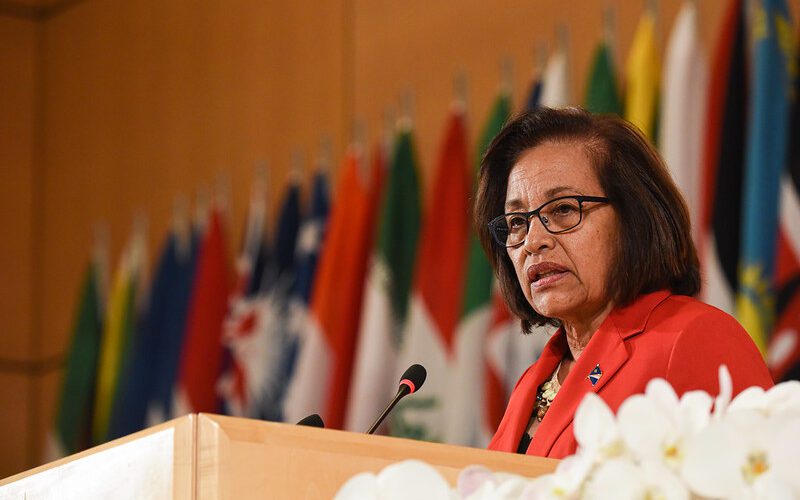Sign up here to receive The Yappie’s weekly briefing on Asian American + Pacific Islander politics and support our work by making a donation.
After months of uncertainty, the U.S. Congress passed legislation this month to continue funding the Compacts of Free Association (COFA)—an agreement that allows the U.S. to maintain military rights over the Marshall Islands, the Federated States of Micronesia, and Palau in exchange for economic aid.
Part of a spending bill, the legislation will provide over $7 billion to the three Pacific nations over 20 years and restore access to federal benefits like food stamps for COFA migrants in the U.S.
- Although the COFA agreements were renewed last year, the delay in congressional approval sparked fears that funding might be withdrawn, leaving COFA nations and their citizens vulnerable.
- Marshall Islands President Hilda Heine told The Guardian’s Jon Letman last month that her nation’s relationship with the U.S. was “gradually being destroyed by party politics in the U.S. Congress.”
Over 94,000 citizens from the three island nations live in the U.S., according to a 2020 report by the U.S. Government Accountability Office. They were previously eligible for federal assistance programs but lost much of that access after the Clinton-era 1996 Welfare Amendments Act.
- “In addition to solidifying our relationship with the Compact nations for the next 20 years, this agreement corrects a nearly 30-year-old policy failure that has prevented the tens of thousands of COFA citizens who live, work, and pay taxes in the U.S.,” Sen. Mazie Hirono (D-Hawai‘i), who led support for the measure, said in a press release.
Yes, but: The COFA package does not include annual reimbursements for host communities like Guam, The Guam Daily Post’s John O’Connor points out. The reimbursements expired at the end of 2023.
- Guam Delegate James Moylan (R) has since released a statement clarifying that COFA migrants living on Guam would not qualify for certain federal benefits because they are not currently available for U.S. citizens in the territory—even if they are restored for COFA migrants on the continental U.S.
Of note: The spending bill also sets aside over $307 million for Hawai‘i under the Compact Impact Fairness Act, which Hirono first introduced in 2021.
- The funds will be earmarked for nearly 50 nonprofits and government agencies in Hawai‘i working on projects to strengthen conservation efforts, upgrade infrastructure, and support community programs.
- Don’t forget: Over 15,000 Micronesian migrants reside in Hawai‘i, Radio New Zealand’s Tim Glasgow reports. Many are subject to discrimination on the islands.
This story appeared in the “On the Hill” section of The Yappie’s March 20, 2024 newsletter.
The Yappie is your must-read briefing on AAPI power, politics, and influence, fiscally sponsored by the Asian American Journalists Association. Make a donation, subscribe, and follow us on Twitter (@theyappie). Send tips and feedback to [email protected].









